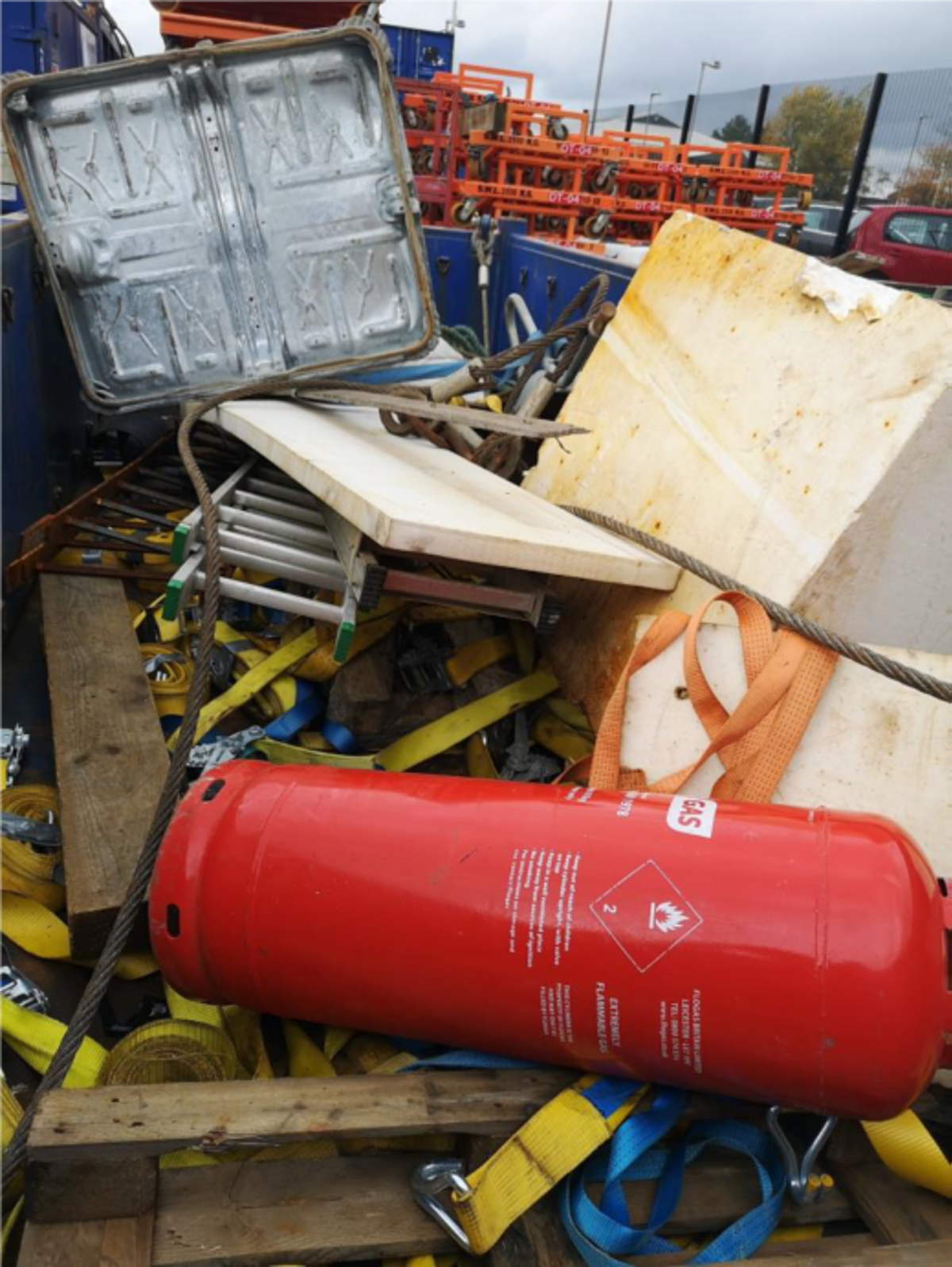Unsafe backloading of equipment
- Safety Flash
- Published on 21 December 2018
- Generated on 29 April 2025
- IMCA SF 29/18
- 1 minute read
Jump to:
Project related equipment was returned to a yard in a half-height container. The equipment came from a project-chartered vessel which had been demobilised at a nearby port.
What happened?
As the half-height container was unloaded from the truck, it became obvious that the equipment inside was inadequately packed and secured. The contents of the container included an empty intermediate bulk container (IBC) and a full propane gas cylinder.

What went wrong?
- Inadequate active supervision during the demobilisation.
- Low risk perception and rushing to get the job finished.
- Failure to acknowledge or understand hazardous acts/conditions and the importance of intervention.
What lessons were learned?
- Personnel to call an ‘All Stop’ if an unsafe act or condition is observed.
- Vessel management should ensure all equipment is backloaded in a safe and secure manner.
This is an ongoing ‘house-keeping’ issue which can be seen in previous reports.
Related Safety Flashes
-
IMCA SF 10/17
12 May 2017
-
-
IMCA SF 01/14
21 January 2014
-
IMCA SF 10/13
25 June 2013
IMCA Safety Flashes summarise key safety matters and incidents, allowing lessons to be more easily learnt for the benefit of the entire offshore industry.
The effectiveness of the IMCA Safety Flash system depends on the industry sharing information and so avoiding repeat incidents. Incidents are classified according to IOGP's Life Saving Rules.
All information is anonymised or sanitised, as appropriate, and warnings for graphic content included where possible.
IMCA makes every effort to ensure both the accuracy and reliability of the information shared, but is not be liable for any guidance and/or recommendation and/or statement herein contained.
The information contained in this document does not fulfil or replace any individual's or Member's legal, regulatory or other duties or obligations in respect of their operations. Individuals and Members remain solely responsible for the safe, lawful and proper conduct of their operations.
Share your safety incidents with IMCA online. Sign-up to receive Safety Flashes straight to your email.